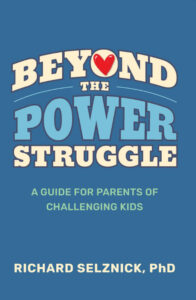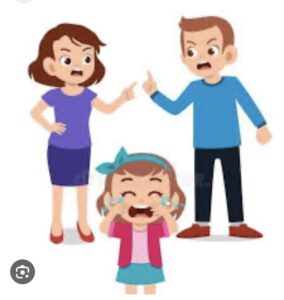“Missed Opportunities for Practicing ‘The Skill of…'”

So much of a child’s world can be framed in an ongoing series of different skills.
For example, some kids have the “skill of” saying hello and greeting someone they meet for the first time. Others may have the “skill of” manners in social interactions by saying “please” and “thank you” – things like that. These skills of greeting someone or using social manners do not happen naturally. They are learned and practiced over countless repetitions,
What happens when we shut off the ability to practice these skills? Then there are lost opportunities and the skills simply do not develop.
Marnie, a five year, old came to my office accompanying her mother who wanted to talk to me about her older sister, Jocelyn. When I went out to greet the mom, Marnie was on some type of head set connected to a small screen device. Marnie never looked up, never said hello. The opportunity was lost for that small social pleasantry and interaction of putting out my hand to greet Marnie and ask her a couple of questions about her world.
Marnie continued to spend the whole time quietly with her head set on, swiping her fingers across the screen. I did not exist as a human being. There was lost opportunity (for both of us) to practice the “skill of” social interaction.
Later in the day I went to “Saladworks” for lunch. A 20-something was in front of me on line. As she placed her order, “I’ll have spinach… I’ll have olives…turkey….banana peppers…” I was struck by the fact that there was no “please” or “thank you” mixed in that salad. The person behind the counter dutifully filling up the woman’s salad bowl did not exist to her. There was no real human or polite social interaction.
Maybe the 20-something was just an older Marnie, someone who never had the opportunity to practice essential skills.
There are continual opportunities to practice the “skill of ___________ ” (fill in the blank). Out of expedience parents may be cutting off these opportunities.
It certainly is easier having Marnie completely quiet and transfixed on a screen than deal with the usual five-year-old behaviors.
It just seems that something is off, though,
To Contact Dr. Richard Selznick for advice, consultation or other information, email: shutdownlearner1@gmail.com.

 Copyright, Richard Selznick, Ph.D. 2023, www.shutdownlearner.com.
Copyright, Richard Selznick, Ph.D. 2023, www.shutdownlearner.com.

 Since my latest book, Beyond the Power Struggle: A Guide to Challenging Kids, was published some months ago, I have had some interesting interactions – a number of different interviews and parents contacting me about their kid’s behavior.
Since my latest book, Beyond the Power Struggle: A Guide to Challenging Kids, was published some months ago, I have had some interesting interactions – a number of different interviews and parents contacting me about their kid’s behavior.
 An issue often overlooked with children diagnosed as ADHD is a frequently occurring underlying variable of social judgment and difficulty with “reading” cause and effect. Difficulty with reading cause and effect impacts both social and academic functioning, such as understanding inferences with reading comprehension.
An issue often overlooked with children diagnosed as ADHD is a frequently occurring underlying variable of social judgment and difficulty with “reading” cause and effect. Difficulty with reading cause and effect impacts both social and academic functioning, such as understanding inferences with reading comprehension.
 Those of you following this blog for some time know there are some recurring themes in these posts (that mostly irritate me).
Those of you following this blog for some time know there are some recurring themes in these posts (that mostly irritate me). More and more, parents tell me that their children never get homework.
More and more, parents tell me that their children never get homework. Understanding what children want can bring about a major shift in your thinking. If you embrace this concept, I predict your perceptions will change for the better, which then will impact your child.
Understanding what children want can bring about a major shift in your thinking. If you embrace this concept, I predict your perceptions will change for the better, which then will impact your child.